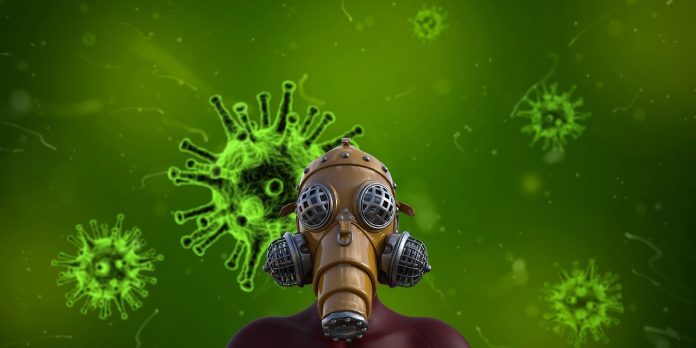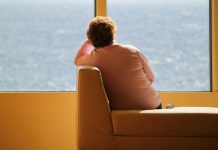
While medical experts and pharmaceutical companies urge you to get yourself vaccinated, you ought to ask yet another question: What do you do after being vaccinated? What does it mean to be ‘safe’? Or is it that we ought to see beyond the process of vaccination to redefine life in the post-pandemic world? At this time of the pandemic, is there something more that we ought to reflect on beyond the process of vaccination? Well, as doctors and scientists are repeatedly reminding us, we all ought to be vaccinated soon to combat the pandemic, or minimize the severity of the disease. As we witness the scarcity of the vaccines, and the ugly politics centered on it, there is tremendous anxiety. One who is lucky to get vaccinated is considered to be privileged; and those who have not yet got it are living with intense fear and anxiety. In a way, it is like the recurrence of the logic of the survival of the fittest; those who have managed to get both the doses, as Facebook messages and imageries indicate, feel ‘victorious’, and tend to believe that they have conquered the battle, and they are ‘safe’. And as modern science and hegemonic biomedicine sanctify the logic of vaccination, and moreover, the fear of death haunts us, it is quite natural that we have begun to believe that we need not bother about anything beyond vaccination. Get yourself vaccinated, come back to the ‘normal’ world, and continue to do what you have been doing before the pandemic: accepting the market-driven logic of ‘productivity’, ‘utility’ ‘efficiency’ and ‘good living’; working in offices, factories and corporate houses as modern slaves; seeing your inflated egos in what you buy and consume; and deriving all sorts of excitement in wars sanctified in the name of nationalism, or a ceaseless flow of hyper- real media simulations. Is it the meaning of being ‘safe’ and ‘normal’? Is there nothing else that the pandemic is asking us to learn?
Believe it, doctors, scientists, technocrats and pharmaceutical companies cannot give you answers to all questions. Yes, they are only suggesting the most efficient ‘means’ to combat the pandemic, and live, or, to put it otherwise, survive biologically.. But then, they cannot tell you how you should live. Yes, they can remind you of the need to follow new norms—use masks and sanitizers, avoid large gatherings, maintain social distancing, and whenever your turn comes get yourself vaccinated. However, the most important question is: How do we live in the post-pandemic world? If we remain obsessed only with the means (the process of vaccination), and forget the very meaning of living—particularly, after passing through chronic uncertainty, psychic bewilderment, fear of death, pain of losing our loved ones, seeing chaotic crematoriums, experiencing acute loneliness, and observing the harsh/naked truth of our society: gross inequality, diverse forms of untouchability, and irresponsibility of the political class— it will be really tragic. Hence, there ought to be a deeper quest beyond vaccination.
Be aware of your inflated egos! Is it possible for us to redefine ourselves, see ourselves as seekers and wanderers, and realize that to live in this vast universe is to be humble? Can humility be a new mantra in the post-pandemic world?
It is in this context that I wish to reflect on three issues. First, it is really sad that we needed a pandemic of this kind to remind us of the hollowness of our egos. The egos of mighty nations like the United States and the United Kingdom crumbled; the egos of narcissistic leaders in a country like ours proved to be utterly shallow; and as even the metropolitan/affluent class in India, despite their networking, influence and connections, found it extremely difficult to get the oxygen cylinder, or even a bed in the hospital, it was like experiencing a severe blow to the psychology of being privileged. Not solely that. At a deeper level, the ego of our hyper-modernity collapsed. Think of it. As the children of modernity—a worldview that seeks to establish human supremacy over the earth, asserts that with techno-science it can conquer anything, and with the process of increasing medicalization of the human body (from the birth of a baby to the last moment at the ICU of a mega hospital, from pregnancy to bypass surgery, or from plastic surgery to anti-aging devices) it can postpone death—we began to see ourselves as conquerors, or masters of the world. In a way, the pandemic seeks to convey a message: Be aware of your inflated egos! Is it possible for us to redefine ourselves, see ourselves as seekers and wanderers, and realize that to live in this vast universe is to be humble? Can humility be a new mantra in the post-pandemic world? No, there is no vaccine that can make you humble. It is a quest, a realization, or a matter of self- introspection.
Second, even though, under ‘normal’ circumstances, we refuse to accept the inherent uncertainty of existence (say, death is real; it can knock our doors any moment; and the excuse can be anything—the accidental detection of a malignant tumor, a cardiac attack, a road accident, or a sudden earthquake), the pandemic, it seems, is compelling us to see that our ‘tomorrows’ cannot be absolutely predicted and controlled, medical insurances cannot make us immortal, and death is very near and real. Think of this second wave. Is there anybody who has not seen his/her friends/colleagues/loved ones dying? Is there anyone who has not felt that it is just a chance that one is still alive? Is there anybody who has not felt the hollowness of ‘beauty industry’ as human bodies float in the ‘sacred’ river? And even after vaccination, you and I will die (because Covid is not the only reason why people die); and no astrologer or no doctor can predict it. Hence, the question is: In the post-pandemic world, can we learn the art of living with the acknowledgement of death and uncertainty of ‘tomorrow’? Possibly, this means that to live is to live with a sense of gratitude. At this moment, you are alive; this moment is the only moment you know; this moment has to be lived and experienced with absolute mindfulness; this is the time to love, to heal, to connect, to hear the whisper of trees, to flow with the river, and to spread positive vibrations. The true awareness of death and uncertainty need not make us ‘depressive’ or ‘other worldly’; instead, it can transform our pain into a form of prayer: the prayer that touches the infinite sky, and makes us lovable and compassionate.
And third, if humility, gratitude and compassion begin to characterize us in the post-pandemic world, we will evolve a profound critique of the prevalent politics of techno-capitalism: the way it transforms us into greedy consumers, intensifies anonymity, expands surveillance machineries, destroys the culture of trust and non-utilitarian relationships, and reproduces socio-economic inequality (vulgar affluence amid hunger and malnutrition; gated communities amid chaotic/non-hygenic slums; ‘health tourism’ for the rich amid the crumbling public health infrastructure; and the narcissism of authoritarian political masters amid alienated/helpless/crippled masses). Possibly, with this realization we will try to create a new world based on the ethics of care, connectedness with the eco- system and the nuanced art of living and dying.
Will it ever be possible? Or is it that after being vaccinated, we all will begin to carry on the same mistake, and live with the same greed, arrogance, superficiality and violence? Let us ask this question. Neither the pharmaceutical companies nor the brigade of celebrity babas can provide a meaningful answer to this question. You and I have to search, and keep our quest alive.
Avijit Pathak is Professor of Sociology at JNU.













